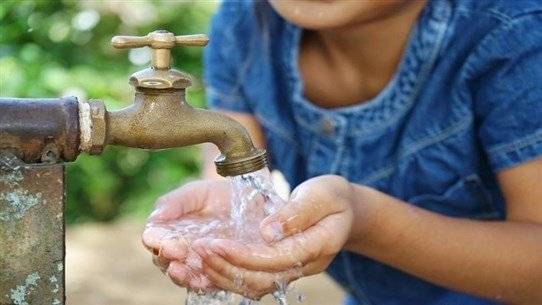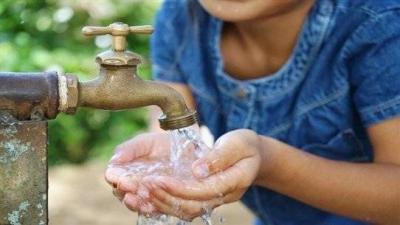As expected, the results of tests conducted on drinking water samples in the Doniyeh region revealed widespread contamination, deeming the water unsuitable for consumption. This highlights a severe crisis in an area considered one of Lebanon's richest in springs and groundwater. The tests, carried out in the laboratory of the Chamber of Commerce, Industry, and Agriculture in Tripoli at the request of the President of the Doniyeh Municipal Union, Mohamed Saadiyeh, followed reports of viral hepatitis cases known as jaundice in several towns in the region, specifically in Bakhoun, Harf al-Sayyad, Marah al-Siraj, and Kfarshalan, which rely on the water from the Zahlane spring. Patients were transferred to hospitals for treatment after the Bakhoun health center recorded several cases of jaundice in recent days.
Dr. Mohamed Salma, head of the health department in the municipal union, who has been monitoring the issue since its inception, explained to "Al-Akhbar" that the test results "showed a high level of contamination, except for two suspicious tests that we need to repeat next week, in Bakhoun and Kfarshalan, and that most drinking water in Doniyeh is unsuitable for consumption due to the infiltration of sewage water and the presence of nearby illegal waste dumps." Salma held the Doniyeh Water Authority accountable for the shortcomings and for failing to adequately address the issue of drinking water contamination in the area.
Salma's criticism of the Doniyeh Water Authority, along with accusations of negligence, is echoed by mayors, doctors, community leaders, and citizens, who blame the authority for not fulfilling its responsibilities in this regard.
Responsible sources within the Doniyeh Water Authority responded to these accusations by stating to "Al-Akhbar" that the authority "is fulfilling its role and there is no negligence. We take drinking water samples daily from various areas in Doniyeh and analyze them in our laboratory. We have daily, weekly, and monthly reports that we submit to officials at the North Lebanon Water Authority. Most of these tests have shown that the water is safe, and any contamination issues we encounter are dealt with by adding chlorine to disinfect the water."
Regarding the emergence of jaundice cases in Doniyeh, sources from the Water Authority attributed it to "a number of citizens who, due to the water rationing we implement from time to time, resort to buying tankers of drinking water from unknown and unsanitary sources, a matter we cannot control, as tanker owners and citizens fill drinking water from various sources along the roads of Doniyeh, most of which are contaminated."
The sources pointed to two main problems causing water contamination, which the Water Authority is unable to resolve: first, the "problem of illegal waste being dumped in riverbeds and near water springs," and second, "the sewage networks discharging into riverbeds or near springs, a problem that exceeds the authority’s capacity to resolve, requiring a fundamental solution that only the state or relevant ministries can provide. We barely manage maintenance work, and even with chlorine, if international organizations did not assist us in obtaining it, we would not be able to use it."




